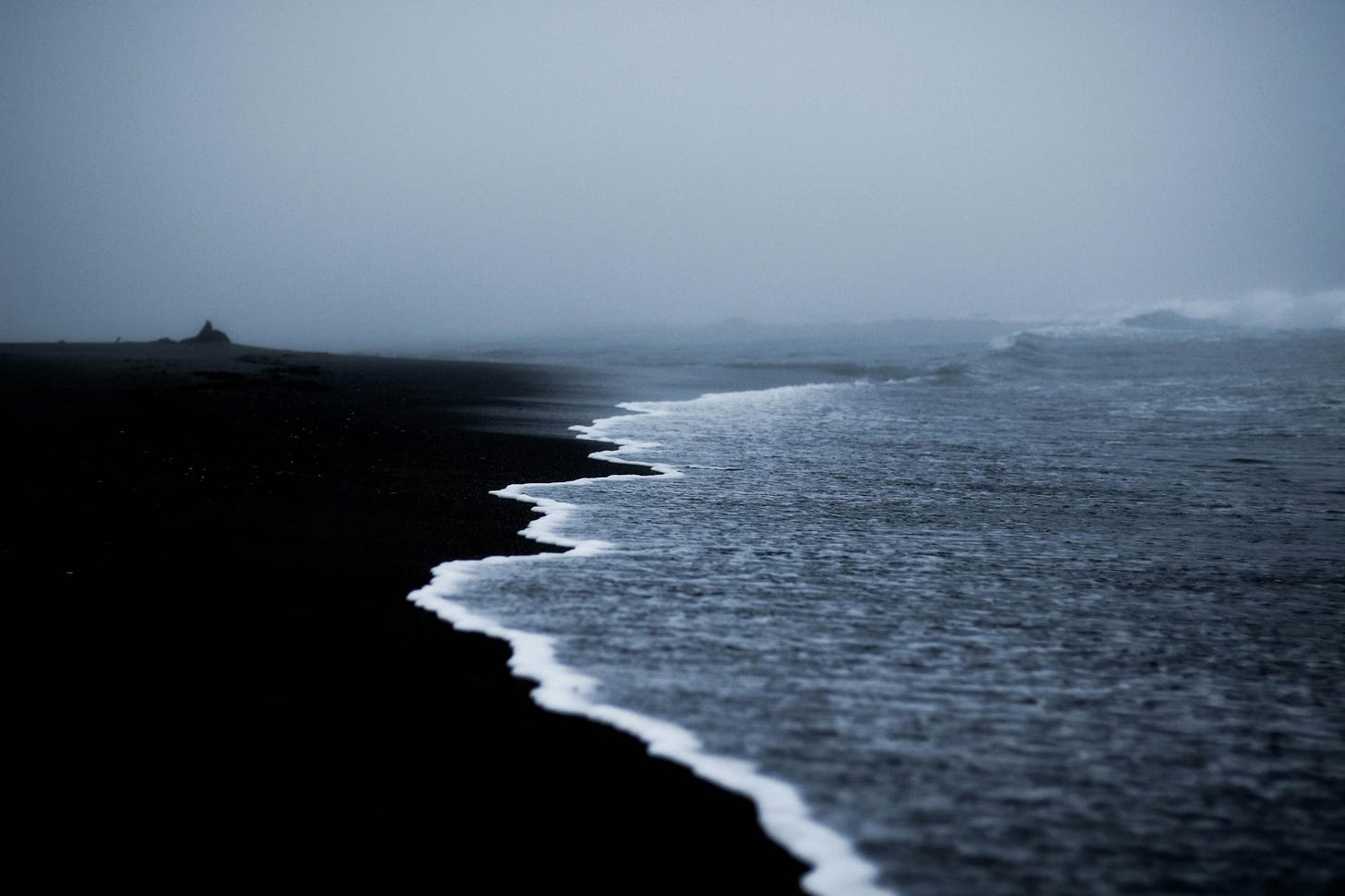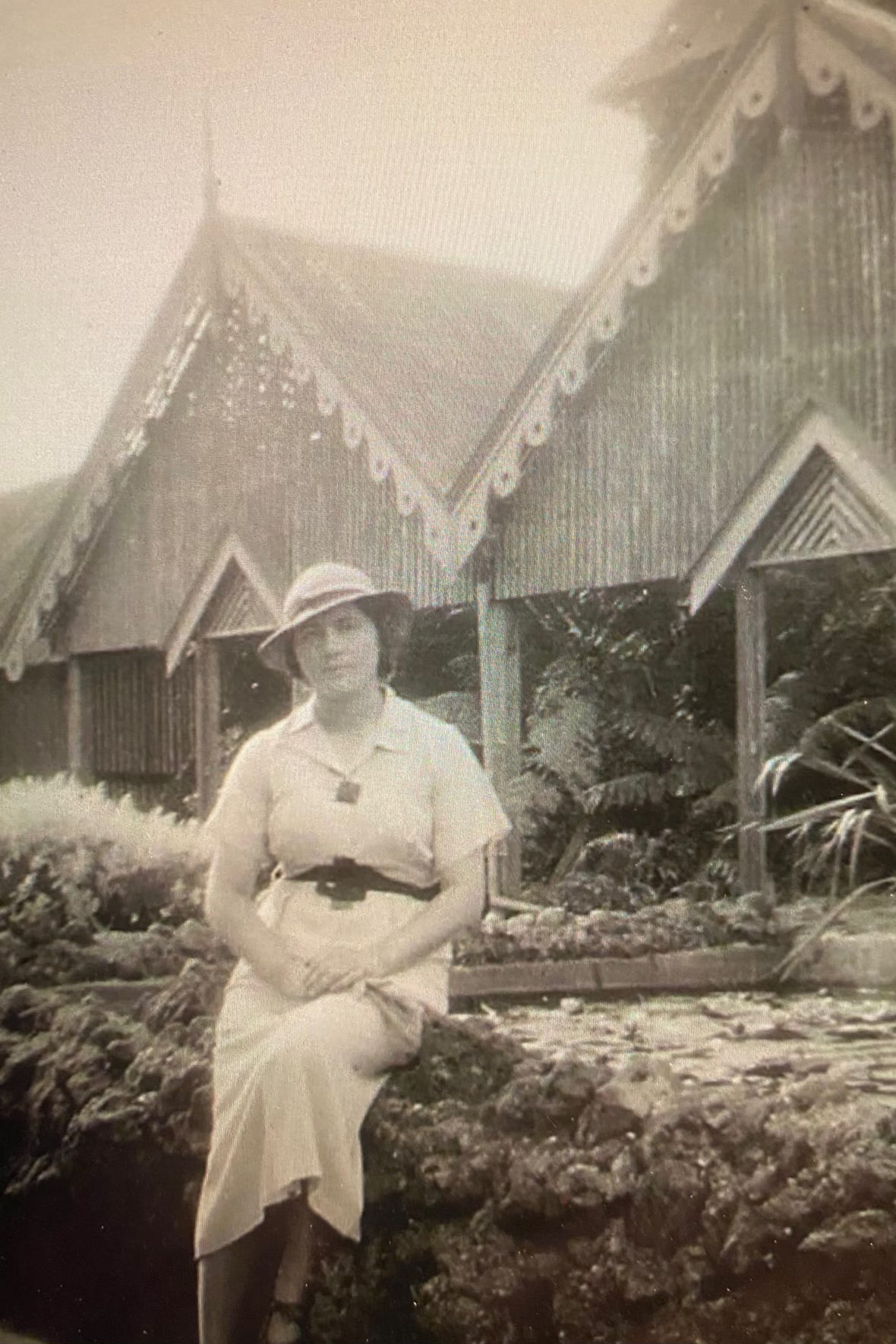“This is the work of time and grace.”

Alchemy If indeed you are feeling sad, and your experiments in alchemy have left you with lead instead of gold, know this: even lead has its purpose. To turn the seadrift in your chest into a sky alive with constellations— yes, that is the work of time and grace. I’m not heading far away until Sunday morning. If I pack early tomorrow, I can come down to you. Find you as the tide turns. My heart was heavy with the new moon today. I saw people at the edge of their frailty, and for a few moments, my heart was confused. In that fearful instant, I thought I might never return to the person I was before— steady and sure, having rowed to the wreck. I thought I might vanish from the failing person beside me. But I remained, Still and listening. Later, as the night deepens, I return to myself. My heart becomes a lighthouse. Friendships sail safely away. And if you are adrift tonight, know this: there is a beam sweeping slow across the dark— Know I am there.
There was a season in my life, a long season, when I felt adrift. I was in my mid-twenties, trying to find out who I was, who I was meant to become. Even though, I was often surrounded by people, but I felt alone and misunderstood.
Looking back, I realize now that we were probably all feeling like that in our mid-twenties.
There were moments when the world grew quiet around me, quiet enough to write poetry. I was in touch with my heart back then, but my head was a mess. I was a young, young man, and I found myself asking questions I hadn’t dared ask before. Not the usual career questions, though I was under pressure to ask those too, but deeper ones.
How do I serve?
Who am I when everything I thought I needed doesn’t mean anything?
It was easy form me to think myself into a corner, and I often did. I was often stuck there.
At the time, I was living in Ballarat and studying at university. Every now and then, maybe weekly, I remember that I’d have dinner with my grandmother, on a Tuesday night. She’d been a catholic nun in her mid-twenties. I found her fascinating as she had lived a very full life by the time she was my age then. Her father died when she was very young, and she spent her childhood helping to raise her younger siblings while her mother did domestic work in and around Sebastopol where they lived, just south of Ballarat.
She never really told me why she had felt called to be a nun from a young age, she was very private about that journey. She left her vocation though and later had a large family. This was her late twenties, and after she worked at a local psychiatric hospital for a year or two. When I’d visit her, I’d ask questions about her younger life. She didn’t offer much, just that she worked a lot, looking after other people. At the time I was talking with her, in her early seventies, she still went to Mass a few times a week and remained a devout Catholic.
As I said, by then, I had drifted, spiritually, emotionally, directionally. I was raised Catholic, but by the early to mid-1990s, I’d wandered into reading and being interested in New Age spirituality. Writers like Wayne Dyer were at their peak, and strangely enough, their books led me back to something deeper. This was because they often quoted Catholic mystics and saints.
Around this time, I bought a book by Mother Teresa. It was an odd thing for me to do, but her words were plain, grounded and they went straight through me.
She wrote often, “Each of them is Jesus in disguise.”
She was talking about the poor, the dying, the forgotten. But more than that, she was always pointing to presence, to recognizing the divine, not in a church or a personal triumph, but in a frail hand, a broken or crazy voice, or someone who just needs help with the basics neccessities of life.
I don’t mention it much, but some of her philosophy has stayed with me. And just quietly, I think at that time, it changed my life.
Not long after reading that book, I began working, supporting people with disabilities. It wasn’t some grand decision. It wasn’t a noble calling. Any more than my grandmother’s time at the psychiatric hospital was. For me, it was a quiet, working-class “yes.” A response to a whisper I couldn’t name.
By then, I was bombing out at uni. Swapping majors too many times, spending more time in the library reading esoteric books than studying. I was close to being kicked out.
But something in me began to mend when I started the work. Not all at once, but gradually. Through the simple act of being with others, supporting them, listening, guiding gently, I found a rhythm for my own life.
Around the same time, my grandfather, on the other side of the family passed away after a rough final few years. Grief, I learned, can’t always be fixed. Sometimes it asks to be used.
I didn’t know it then, but this work, this sense of service, would carry me through the rest of my life. Nearly 30 years later, I’m still work in the field.
It has taught me something quiet and true:
Love is not a feeling. It’s an action.
And some of the most meaningful actions come when we let sorrow do its work.
It moves through our body, softening us. It helps us see the sacred in others, the small dignities that make a day livable. To see Jesus in disguise, if that’s the language that fits your heart.
Or to see yourself, your best, most hidden self,cemerging gently in the mirror of someone else’s need.
A gentle question for you:
Has there ever been a time when grief or loss led you to serve someone else,cor to see the world differently?
What happened when you said yes?
With warmth,
Damian.






Great loss has lead me to writing poetry. 12 years of my StarChild riding comets. Glad to have found your page 🙏☺️
The poet Jack Gilbert wrote, "grief makes the heart apparent." The heart is filled with love both gained and lost, and there's so much to be found by giving it away. Lead is as vital as gold in the heart-works. Lovely, lively meditation here.